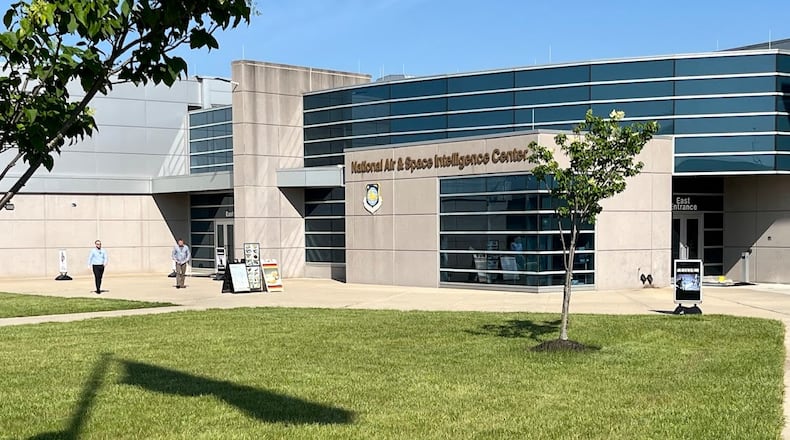“We cannot allow China and other adversaries to get a foothold in the U.S. by buying up land next to our military bases,” said U.S. Sen. Sherrod Brown, D-Ohio, in a statement. ”This will allow us to better monitor who owns the land around Wright-Patt and the JSMC in Lima, and stop purchases that threaten our national security. I will continue working to protect Ohio’s military bases and farmland from foreign ownership.”
A 2018 law granted the committee authority to review real estate transactions near sensitive sites across the U.S.
The rule would add the Joint Systems Manufacturing Center, also known as the Lima Army Tank Plant, in Lima to the list of sensitive installations. It would also expand the radius of sensitive land around Wright Patterson Air Force Base from 1 mile to 100 miles.
The U.S. Committee on Foreign Investment in the United States is a little-known but powerful government committee also known as CFIUS — tasked with investigating corporate deals for national security concerns that holds power to force companies to change ownership structures or divest completely from the U.S.
It is made up of members from the State, Justice, Energy and Commerce departments among others.
The Monday rulemaking announcement comes after President Joe Biden in May issued a divestment order blocking a Chinese-backed cryptocurrency mining firm from owning land near a Wyoming nuclear missile base, calling its proximity to the base a “national security risk.”
Treasury Secretary Janet Yellen said in a statement that the Biden administration is “committed to using our strong investment screening tool to defend America’s national security, including actions that protect military installations from external threats.”
In May 2023, rulemaking began to give CFIUS the power to review land sales near military bases after controversy arose over plans by the Fufeng Group to build a $700 million wet corn milling plant about 12 miles from the Grand Forks Air Force Base, which houses air and space operations.
Earlier this year, Sen. Brown joined 23 other senators in introducing the AFIDA Improvements act of 2024, which would require foreign persons to disclose transactions related to U.S. agricultural land to the U.S. Department of Agriculture.
In 2023, Ohio passed the Save our Farmland and Protect our National Security Act, which prohibits agricultural land ownership by anyone, person or company, that is listed on a registry compiled by Ohio’s Secretary of State. The registry, which is published online on the Secretary of State Website, consists of anyone that “constitutes a threat to the agricultural production of Ohio,” including foreign adversaries, terrorists, and those under sanction. The registry includes countries like China, Iran, and North Korea.
As of December 2022, foreign investors hold an interest in 3.4 percent of all agricultural land in the United States, according to the USDA. Earlier this year, researchers at Ohio State University found that 2.7% of Ohio farmland is held by foreign parties, about one-third of that land owned by either Canada or Germany.
Evan Callicoat, director of state policy for the Ohio Farm Bureau said that, while the Bureau is still analyzing the proposed rule, they “have supported similar efforts to protect Ohio farmland from foreign adversaries at the state level”
“According to USDA, Ohio has lost nearly 300,000 acres of farmland in the last five years. In most if not all of cases, that land will never be productive farmland again” said Callicoat.
The proposed rule will be open for public comment for 30 days.
The U.S. has already issued major new tariffs on electric vehicles, semiconductors, solar equipment and medical supplies imported from China.
